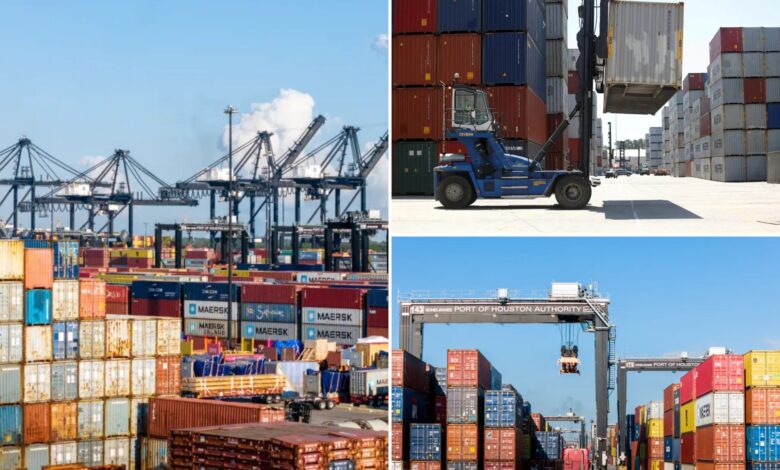Longshoremen union’s demand for total ban on automation questioned as port strike looms: ‘From Maine to Texas’

As thousands of dockworkers are preparing to strike should a deal not be reached by the end of Monday, one business leader is questioning the union’s demand for a total ban on automation.
International Longshoremen’s Association (ILA) on Sunday said its 85,000 members, along with “tens of thousands of dockworkers and maritime workers around the world,” will hit the picket lines Tuesday “and strike at all Atlantic and Gulf Coast ports from Maine to Texas.”
The union is demanding higher wages and a total ban on the automation at ports regarding cranes, gates and moving containers in the loading and unloading of freight.
Benchmark Capital’s Bill Gurley reacted on social media to the union’s demands, writing that the federal government should step in if the union seeks a total ban on automation.
“Outlawing the effective use of technology will unquestionably doom our nation,” Gurley wrote. “We will become globally uncompetitive.”
The ILA and United States Maritime Alliance (USMX), which represents employers at the 36 seaports that could be affected by the strike, have been at an impasse over issues including wages and automation at ports.
“United States Maritime Alliance (USMX) refuses to address a half-century of wage subjugation where Ocean Carriers profits skyrocketed from millions to mega-billion dollars, while ILA longshore wages remained flat,” the ILA said Sunday.
A White House official on Friday confirmed to Fox Business that senior officials from the White House, Labor Department and Department of Transportation have met with the parties ahead of the potential strike, urging them to return to the table to negotiate “in good faith fairly and quickly.”
A potential port strike would disrupt a variety of export and import shipments from East Coast and Gulf Coast ports.
An analysis by J.P. Morgan estimated a strike would cost the US economy up to $5 billion per day.




